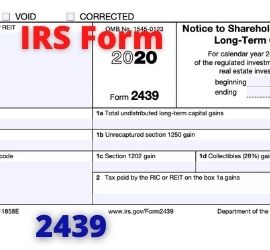What Is Unearned Income?
 Unearned income is also referred to as passive or deferred income. It is income from investments and other sources unrelated to direct employment or owning a business. For example, earned income comes from working a regular job providing a product or service and receiving compensation in the form of wages, tips, or a salary. In contrast, unearned income doesn’t require direct participation. Lower tax rates usually apply to unearned income. Examples of unearned income include interest from savings accounts, bond interest, alimony, and dividends from stocks.
Unearned income is also referred to as passive or deferred income. It is income from investments and other sources unrelated to direct employment or owning a business. For example, earned income comes from working a regular job providing a product or service and receiving compensation in the form of wages, tips, or a salary. In contrast, unearned income doesn’t require direct participation. Lower tax rates usually apply to unearned income. Examples of unearned income include interest from savings accounts, bond interest, alimony, and dividends from stocks.
Unearned income is a term used by the IRS to define income that is derived from means other than personal effort. The IRS considers wages, tips, salary, and other taxable compensation to be earned income. Income that does not meet these criteria is considered unearned. Knowing the difference between unearned income and earned income is important because the two are taxed differently. While unearned income is frequently subject to taxes, it is typically not subject to payroll taxes. For example, earned interest is not subject to payroll taxes, but is frequently subject to a capital gains tax. Unearned income also is not subject to employment taxes, like Social Security and Medicare taxes. Some unearned income, such as life insurance proceeds, are not taxed at all.
What is Unearned Income According to the IRS?
The IRS identifies investment-type income such as taxable interest, regular dividends, and capital gain distributions as examples of unearned income. Unemployment compensation, taxable social security benefits, pensions, annuities, debt cancellation, and distributions of unearned income from a trust are all included. This information can be found in Publication 17, Title: Your Federal Income Tax, in the Filing Information chapter.
Unearned income includes investment-type income such as taxable interest, ordinary dividends, and capital gain distributions. It also includes unemployment compensation, taxable social security benefits, pensions, annuities, cancellation of debt, and distributions of unearned income from a trust. This information is found in the Filing Information chapter of Publication 17, Your Federal Income Tax. (Source: irs.gov)
Because of qualitative differences, taxation will differ for earned and unearned income. Furthermore, tax rates differ depending on the source of unearned income. The majority of unearned income is not subject to payroll taxes, and none of it is subject to employment taxes such as Social Security and Medicare. It is up to the individuals with unearned income to understand the source and taxation of their income.
Earned Income According to the IRS
According to the Internal Revenue Service (IRS), earned income includes any taxable income and wages you receive from working for someone else, for yourself, or from your own business or farm.
- Wages, salaries, and tips – are considered earned income where federal income taxes are withheld on Form W-2.
- Gig economy work – Income from a job where your employer didn’t withhold tax. For example, driving a car for booked rides or deliveries.
- Self-employment – Money made from self-employment, including if you own or operate a business or a farm or you are a minister of a religious order.
- Combat pay – Nontaxable Combat Pay (Form W-2, box 12 with code Q).
What is Unearned Income According to the Social Security Administration (SSA)?
According to the Social Security Handbook, “Unearned income is all income that is not earned.”
If your salary is too high and you haven’t reached full retirement age, the Social Security earnings test may lower your retirement benefits. Only earned income is evaluated when the Social Security Administration uses its earnings test. Earned income is considered wages from employment, for example, or profits from a business you own and operate. Investment income, capital gains, pension income, and income from annuities do not count. In other words, it makes little difference whether your investments pay you $1,000, $10,000, or $1 million per month. Your Social Security payments will not be lowered unless you have income from a job or a business in which you actively engage.
What is Unearned Income for Investors?
The most prevalent types of unearned income for investors are interest and dividend income. Money received in this manner is called unearned income. The tax paid on it is also considered unearned income tax.
Interest income
In general, any interest that you receive or that is credited to your account and can be withdrawn is considered interest income by the IRS. This includes interest generated on checking and savings bank accounts, loans, and certificates of deposit (CDs). These types of interest are often taxed as ordinary income. There are certain exceptions to this rule, such as municipal bond interest, which is exempt from federal income tax.
Dividends and Other Distributions
Dividends are normally paid to shareholders on a regular basis from investments. These distributions can be paid to an investment account on a monthly, quarterly, annual, or semiannual basis. Dividend income can be taxed at either standard tax rates or preferred long-term capital gains tax rates.
Dividends are taxed differently depending on whether they are “ordinary” or “qualified.” Ordinary dividends are the most frequent type of dividend received by investors. They are taxed at ordinary tax rates. Qualified dividends, on the other hand, are subject to more advantageous capital gains tax rates. However, qualified dividends must meet certain criteria.
Dividends can be distributions of money, stock, or other property paid to you by a corporation or by a mutual fund. You also may receive dividends through a partnership, an estate, a trust, or an association that is taxed as a corporation. However, some amounts you receive called dividends actually are interest income. The most common kinds of distributions are ordinary dividends, capital gain distributions, and non-dividend distributions. Most distributions are paid in cash (check). However, distributions can consist of more stock, stock rights, other property, or services. (Source: irs.gov)
REMICs
A REMIC is an investment shell that was founded to hold a fixed pool of mortgages backed by real estate interests. These investment vehicles provide investors with both regular and residual interests. A REMIC is not considered a company, partnership, or trust. Normally, a REMIC recognized as a partnership for the purposes of subtitle F of the Internal Revenue Code (Procedure and Administration). The residual interest holders act as partners. Regular interest payments are recognized as debt instruments. REMIC income or loss is not the result of a passive activity.
A REMIC is an entity formed for the purpose of holding a fixed pool of mortgages secured by interests in real property. A REMIC issues regular and residual interests to investors. Generally, A REMIC is not treated as a corporation, partnership, or trust. For purposes of subtitle F of the Internal Revenue Code (Procedure and Administration). A REMIC generally is treated as a partnership with the residual interest holders treated as the partners. The regular interests are treated as debt instruments. REMIC income or loss is not income or loss from a passive activity. (Source: irs.gov)
Other sources of unearned income
- Taxable interest, ordinary dividends, & capital gains including capital gains distributions
- Property income & rents
- Retirement accounts, 401(k)s, pensions, and annuities
- Inheritances, alimony, & gifts
- Lottery winnings
- Veterans Affairs (VA) benefits, social security benefits, & welfare banefits
- Unemployment compensation
- Taxable scholarship and fellowship grants not reported on Form W-2
- Income (other than earned income) received as the beneficiary of a trust.
Up Next: PIPE Investors – Private Investment in Public Equity (PIPE)
 Private investment in public equity (PIPE) refers to PIPE investors buying a block of newly issued stock from a publicly-traded company. Usually, at a price below the current market value. This purchasing strategy is used by investment firms, mutual funds, and other large, accredited investors. A standard PIPE investment is one in which the investor receives common or preferred stock at a fixed price. Whereas, a structured PIPE investor receives common or preferred shares or convertible debt.
Private investment in public equity (PIPE) refers to PIPE investors buying a block of newly issued stock from a publicly-traded company. Usually, at a price below the current market value. This purchasing strategy is used by investment firms, mutual funds, and other large, accredited investors. A standard PIPE investment is one in which the investor receives common or preferred stock at a fixed price. Whereas, a structured PIPE investor receives common or preferred shares or convertible debt.
Ultimately, the PIPE issuer is looking to sell additional shares to quickly raise funds for a publicly-traded company. There are fewer regulatory difficulties with the Securities and Exchange Commission (SEC). Therefore, this financing approach is more efficient than secondary offers.




